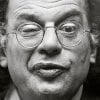I’m investigating the concept of home as it appears in poetry published by writers affiliated with the Watts Writer’s Workshop, a workshop created by director Budd Schulberg in the late 1960s as a response to the Watts Rebellion of 1965. The Watts Rebellion, called a “riot” by the media at the time, was an uprising […]
Author Archive | ekwooten1
Concepts of race in 21st century poetry: a reflection
One characteristic that both critical readings for this week share is that they focus on how 21st century poetry attempts to center experiences and works of BIPOC poets that previous poetic frameworks might have marginalized or relegated to lower status due to perceptions of race, politics, and subjectivity. Yu explains, “Rather than seeing the work […]

The many palimpsests of “Tu Do Street”
In “Black and Blues Configurations,” Walton Muyumba argues that Yusef Komunyakaa’s poem “Tu Do Street” replaces notions of “oppositions” and “hierarchical arrangements” common within Black poetry at the time with a “palimpsest,” a pair or group of scenes or realities overlaid one on top of the other so that each one is extant at the […]

Quilting and Hejinian’s L=A=N=G=U=A=G=E Poetry
The L=A=N=G=U=A=G=E School of poetry is full of works that are notoriously challenging to unpack for readers who are used to more clear attempts at “representational” or “realistic” poems. I put these terms into quotation marks because, as most poets from this movement would attest, the very idea of representing ideas through language is problematic […]

Sonnet for the Girls at the Boxing Gym She wraps away the tenderness of dawn, gauze-covers hands that shy away from violence, their primal yearnings tamped by measured silence. Pink gloves, the bag, her sneakers, old New Balance, the jackal in her heart, restrained by law, froth-foaming now, barbaric, barbed, and raw. Lightning-like, jab […]

Shakespearean Form and Content in Brooks’ “Young Afrikans”
Black Arts Movement writers had a contentious relationship with Western culture (and rightly so, after centuries of slavery, colonization, disenfranchisement, and oppression), and many writers from this movement sought to exorcise white, Western influence entirely from their writing. Gwendolyn Brooks writes about the preference for Black aesthetics over White on several occasions. Her poem “To […]
Adam Beardsworth’s “Melancholia and the Bomb: Robert Lowell, Anne Sexton, and the Fragmented Atomic Psyche”
When I read our assigned poems from the Confessional movement, I was drawn to images of fragmentation and decomposition. These images, in line with Bly’s Deep Image poetics, allow readers to visualize physical representations of incorporeal emotional processes-many of the poets themselves were diagnosed with so-called “breakdowns” and other psychological problems that caused them to […]

“September, Summerville”
“September, Summerville” It’s Saturday, 11:30, and while you’re at work, I sit at the bar at Frothy’s, fiddling with the QR code reader. It’s hot and muggy outside, and I shiver in the air conditioning, sweat from my morning boxing class and the September heat still damp on my shirt. The phone finally scans the […]

Creeley’s unfilled voids
Okay, I’ll be honest—this week’s poems featuring representatives from the Black Mountain School of poetry largely perplexed me. In my defense, I have Covid Brain, and anything that requires more intensity of thought than measuring a dose of nasal spray is a bit tricky at the moment. But when I stepped back and looked at […]

“Muzzled”–a creative response to “Howl”
Muzzled -Erin Larsen 1. We’re all medicated here! Or at least I don’t know anyone in this gig who is not defanged muzzled castrated by the opiates of the middle classes— fluoxetine, sertraline, venlafaxine, citalopram, imipramine, voritoxetine can’t cry anymore, can’t come, can’t feel but at least we won’t lose our jobs, right? or we […]